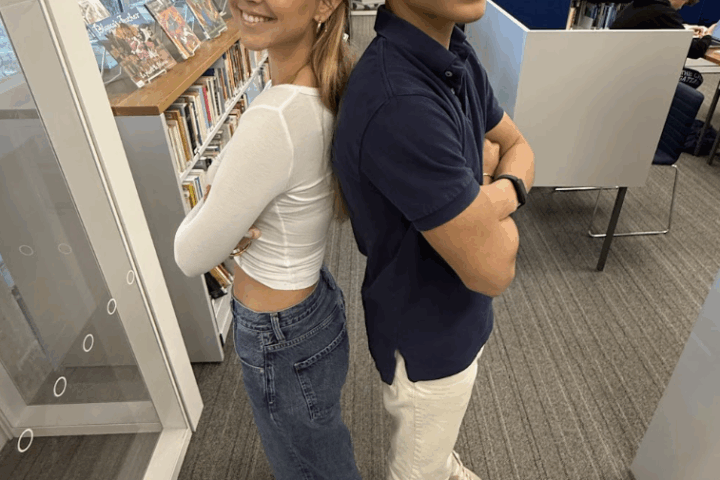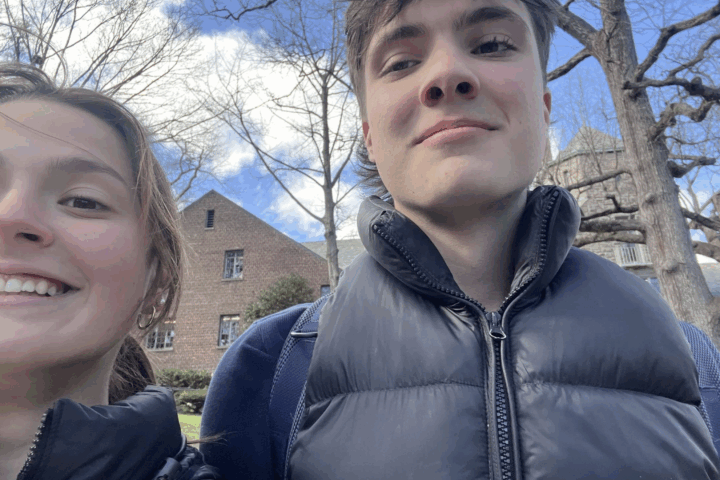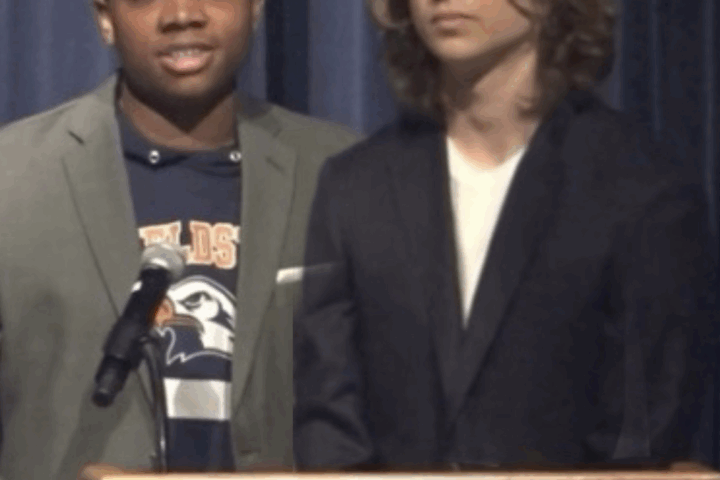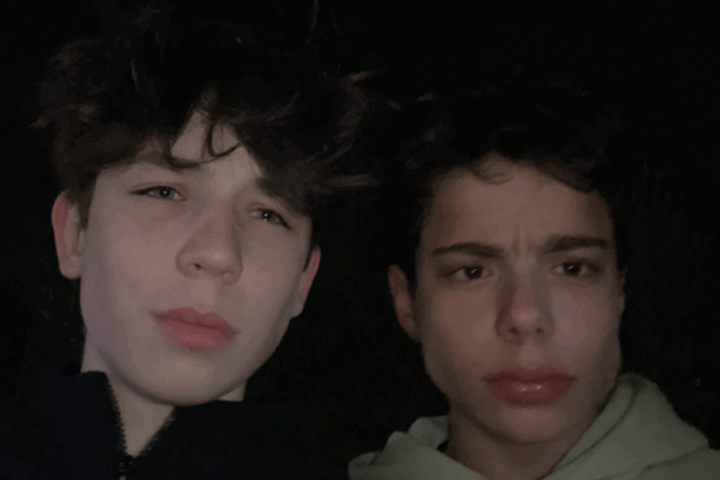
Last week, the Supreme Court decided to uphold the ban on affirmative action in Michigan. In his decision, Chief Justice John Roberts declared, “the way to stop discriminating on the basis of race is to stop discriminating on the basis of race.” In blistering dissent of the decision, which she found abhorrent, Justice Sonia Sotomayor responded to the claim saying that “the way to stop discriminating on the basis of race is to speak openly and candidly about the issues surrounding race” in this country. So that’s what we did at Fieldston on April 28th, when we held our first diversity-centered Fieldston Awareness Day, or FAD.
The day started with leaders from the Students United for Equity and Inclusivity reading their mission statement. They talked about respecting opinions and taking the day seriously. To this end, I thought my peers and I followed through with their request. My friends and I decided to approach the day with the seriousness and gravity we felt it deserved. I can only speak for myself in this article, but I do feel that my sentiment matches that of the community at large, so when I say that I had low expectations for the day, I am reasonably confident that at least some of my peers felt the same way. I understood why we were having the FAD, but questioned whether or not this was the best approach to reach the community. People, including myself, had already felt attacked and so the creation of a mandatory day seemed like a continuation of that pattern.
After the assembly, juniors and freshmen were moved into the JV gym for an exercise in which we stepped forward to demonstrate our privilege. To me, this exercise, while ostensibly eye-opening, only demonstrated the privilege I was acutely aware of. At Fieldston, I’ve been very consciously made aware of the immense privilege I have, and in no way am I claiming that it does not (or will not) help me. That being said, pointing out that someone (or a group of people) is privileged has become a way to dismiss opinions and limit public discourse. My feelings matter, and I deserve to feel them, regardless of my skin tone or gender, and whether or not those have helped me in my life. The “step forward if you…” exercise forced the more privileged people to the center of the room while people with less privilege stayed towards the back. In that sense, the exercise had the desired effect. The entire process, however, felt deeply troubled.
The first problem was simply logistical. There was not enough space in the gym, and this created an informal attitude that led to laughter and jokes about some of the questions, which brings me to my next problem. Never in my nearly thirteen-year career at Fieldston have I been asked such personal and intrusive questions. I was asked “if [I took] any medication for mental health” or if I “ever had to lie about my sexuality.” These are questions that are normally never ok to ask someone in conversation, but apparently they were okay to ask in a gym full of people. Anonymity was impossible, as I had to step back or forward depending on my answer to those questions. I am not in a position where I would I have to step back for those questions, but if I were, I would have stayed put.
Ocean Gao (V), a leader of the day, said the purpose of the “step forward” activity was to demonstrate that “levels of privilege in the community differ.” And the exercise ended up exactly as I expected. I finished at the center of the room, but again, I had already guessed this would happen. I know that I am privileged. The goal should never have been to show that I have privilege; it should have been to teach me to use that privilege responsibly.
The next portion of the day was a discussion in smaller groups, separated by advisory. This conversation actually was extremely productive. I happened to talk a lot in this section because I wanted to voice my discontent with how issues of race are talked about at Fieldston. Primarily, I wanted to voice my frustration with the “Overheard at Fieldston” project. I felt deeply offended by the project, although I’ve been repeatedly told not to feel that way. I’ve been told that the project was not an attack on white people, and that white people who feel like it’s an attack are misguided. The entire project, though, is a thinly covered double standard put on a brightly colored poster. White people are constantly told that whether or not we intend to be racist, the things we say are hurtful nonetheless. This is true. I want to make it explicitly clear that I agree with that view. But those same people who constantly point that out need to look at their own project. It does not matter whether or not the creators intended to hurt people. The reality is that people, many people, felt like they were being attacked by the posters they are forced to look at every single day.
The problem with the “Overheard at Fieldston” posters is not that they point out that micro-aggressions exist at Fieldston (they do), but that they create a problematic relationship between people with privilege and those without it. When a group that preaches radical inclusivity says that people with privilege are always the perpetrator, and people without privilege are always the victim, they create an atmosphere where conversation is stifled. Victims of micro-aggressions on the posters start to look at people with privilege as the people behind the quotes on the wall. They start to look at them as different. The posters portray a static relationship that simply does not exist at Fieldston or anywhere else. We can all be perpetrators, and we can all be victims.
At the end of the conversation, I felt like people had a better understanding of each other, and I guess that was the point. Perhaps this is my own bias speaking, but I feel that the majority perspective, the one of privilege, was better articulated. Frankly, we have already heard the perspective of the less privileged at Fieldston. That perspective is valuable, important, and a large part of this community. Ironically, however, we do not often hear about what it feels like to be white, or straight, or male at Fieldston. It can feel incredibly restricting. When people tell you you’re a perpetrator and racist, you begin to feel like it. Again, Ocean reiterated, “the purpose of the project was not to make anyone feel guilty, because feelings of guilt hinder progress.” To that I’ll say again that intent does not matter. I am made to feel guilty for things I do not do, and some of my peers feel the same way. The conversation made that clear, and I think everyone came away from the discussion a more educated person. These conversations are valuable, and we need to keep having them.
In the end, the day was positive. It’s impossible for me to say that the day was bad for the community, but I do seriously question how much good the FAD did. Ocean also felt that the day was productive, but not enough, telling me that “we definitely still have a long way to go, but I think that we got the message across.” We spend so much time on issues of race at Fieldston, and for good reason. However, I’m not sure if we are spending that time effectively. There are right and wrong ways to talk about these issues, and too many times as a community we pick the wrong ones.
I hope Students United for Equity and Inclusivity lives up to its name. I hope people with privilege can start to live in an environment where they aren’t made to feel ashamed of their privilege. I hope micro-aggressions stop. I hope people begin to come together instead of separating. I hope people focus on what makes us inherently similar, not what makes us inherently different. I hope we continue to talk about these things; I hope we start to pick the right way to do so.






